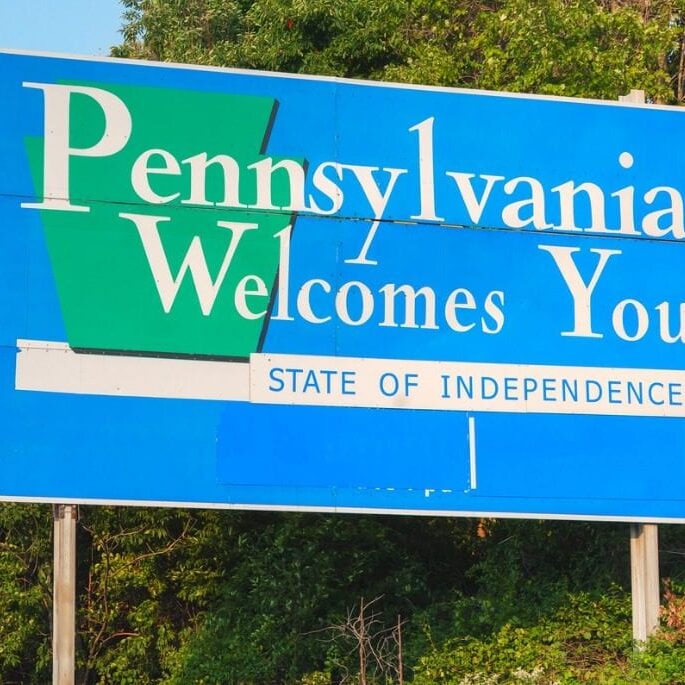Insights < BACK TO ALL INSIGHTS
How to Ensure Your Media Affiliate Follows Pennsylvania Gaming Law
How to Ensure Your Media Affiliate Follows Pennsylvania Gaming Law
By: Steven Eichorn
As discussed in an earlier blog post, New Jersey’s licensing requirements for affiliate marketers impose significantly different structures depending on the revenue model.
If the affiliate marketer only plans to work with casinos in a flat fee model (e.g. CPA or other form of pre-determined compensation), then they must register as a vendor. The vendor registration process is quite straightforward, but it does limit the affiliate marketer to flat fee deals and it also requires a casino partner to initiate the process. If the affiliate marketer plans on working with casinos in a revenue share model, then they must apply for and obtain an Ancillary Casino Service Industry Enterprise (ACSIE) license. The ACSIE application is far more detailed and complex than the vendor registration and it also has personal history disclosure forms for key personnel and direct owners of the applicant.
Pennsylvania Licensing Structure
The gaming regulator in Pennsylvania is the Pennsylvania Gaming Control Board (the “Board”). Pennsylvania also imposes a two-tiered structure for affiliate marketers depending on whether they are operating on a flat fee or revenue share basis, however, the structure is somewhat different from the New Jersey structure.
Generally, an affiliate marketer in Pennsylvania would be a “Gaming Service Provider”, which includes a company that provides non-gaming related services to a slot machine applicant or licensee. In turn, Gaming Service Providers can be either registered or certified by the Board. Whether an affiliate marketer would be registered or certified depends on whether they are operating on a flat fee or revenue share model.
If an affiliate marketer intends to offer flat fee services in Pennsylvania, then the affiliate marketer must become a registered gaming services provider. The application is comparable to the vendor registration in New Jersey, but with far more disclosures, requested personal information, and signing of release paperwork that authorizes a background investigation.
If an affiliate marketer intends to offer revenue share services in Pennsylvania, then the affiliate marketer must become a certified gaming service provider. The form here is slightly different and briefer than the ACSIE application in New Jersey. It also contains the familiar list of questions regarding criminal history, basic financial information, and a net worth statement. However, there are also a few questions about mental health and substance abuse history that do not appear on the New Jersey forms. On the other hand, Pennsylvania does not require the expansive familial details that are required for New Jersey.
The certified gaming service provider application is more complex than the registered gaming service provider and it also imposes disclosure obligations on the applicant’s related entities. For example, the certified gaming service provider registration application includes:
- An application form for the gaming service provider itself (i.e. the applicant company).
- A gaming service provider private holding company form for each affiliate, intermediary, subsidiary, holding company or trust that has a 20% or greater direct interest in the applicant.
- This certification form for the holding companies is for any entity that directly owns 20% or more of the voting securities of the applicant entity. Pennsylvania specifies that qualifying entities are only direct owners (and is different than New Jersey in that respect).
- A personal history disclosure for each owner, officer, director, and salesperson who solicits business from or has regular contact with any representative of a slot machine licensee or applicant. (These persons are sometimes referred to as “qualifiers.”).
- This is for key corporate officers and any direct or indirect owners of more than 10% interest in the applicant (so a slightly higher threshold than the 5% threshold seen in New Jersey).
State Fees
There are a number of state fees associated with the licensing process. The application fee is non-refundable and must be submitted with the application, while the registration fee can be paid after the investigation is completed and prior to the issuance of the actual registration/certification.
The application fee for the gaming service provider registration is $500 for the applicant entity, $60 for each qualifier (e.g. principal, key employee, etc.) listed in the application, and $60 for each affiliated entity. There is also a license fee is $2,500 for an initial five-year term that must be paid prior to the issuance of the registration. (Each subsequent five-year renewal term is an additional $2,500.).
The application fee for the gaming service provider certification is $2,500 for the applicant entity, $500 for each affiliated entity (i.e. the private holding company form), and $1,000 for each qualifier (e.g. principal, key employee, etc. for the personal history disclosure form). There is also a license fee of $5,000 for an initial five-year term that must be paid prior to the issuance of the certification. (Each subsequent five-year renewal term is an additional $5,000.).
Although there are no additional mandatory costs or expenses imposed by the Board, the applicant is also responsible for the cost of the background investigation, such as when an investigator is required to travel, overnight stays, stenographic services are required, etc. In all such cases, the actual costs incurred by the Board are reimbursed by the applicant.
State Review of the Application
After a gaming service provider application is received by the Board, the application is assigned a docket number, will be listed as an “unauthorized gaming service provider,” and will be assigned to a licensing analyst. The licensing analyst will send a letter of acknowledgment to the attention of the contact listed for the gaming service provider and it will also contain a list of deficiencies in the application. This letter will also set a deadline to cure any deficiencies in the application and/or the attachments.
Once the application is “deemed complete,” it is transmitted to the state Bureau of Investigation and Enforcement for investigation. After an investigation of the gaming service provider is successfully completed, the application will be listed as an “authorized gaming service provider.”
Then, the application goes before the Board for approval or denial. If approved, the gaming service provider will be issued its certification or registration after it has paid any outstanding fees (i.e. the license fee for the initial five-year term, which is usually not paid until this point).
Additional Considerations
A gaming service provider may be authorized to conduct business with a slot machine licensee or applicant prior to completion of its background investigation, provided that a completed registration or certification application has been filed.
Gaming service providers, whether registered or certified, are required to submit diversity plan statements with their applications and must submit an annual diversity compliance report assessing their performance for the previous year.
Some Practical Pointers
It is critical to prepare an organizational chart and management chart early in the process so that the applicant and/or their counsel can determine which entities and individuals will qualify for completing the disclosure forms and be subject to investigation.
For example, there is a catchall in the regulations that gives the Board discretion to require other intermediary or holding companies to complete the disclosure and investigation process, even if they are not direct owners of the applicant entity. Therefore, an applicant would want to approach the Board at an early stage and provide a copy of their organizational structure and confirm which related entities on the corporate chain are likely to be subject to disclosure and investigation.
There are also a number of points to keep in mind for the actual applications:
- When completing the actual forms, there are times that answers to the questions will likely be “no” or “does not apply.” An applicant needs to make sure there is a response to every question, even if it is to simply write “does not apply.”
- If any of the related attachments or paperwork submissions are not in English, then the applicant will need to obtain authorized translations to include in the application.
- After all of the paperwork is finalized, a number of documents will need be notarized.
- Finally, from a practical standpoint, it may make sense to work through the paperwork for both Pennsylvania and New Jersey at that same, rather than having to return to investors and holding companies multiple times with similar requests.
The Pennsylvania market is an exciting opportunity for affiliate marketers, however, companies and key personnel need to be cognizant of the regulatory regime that has been developed in Pennsylvania. It is an exhaustive licensing regime that varies depending on the type compensation and additional factors. Therefore, it is advisable to seek assistance, whether from outside counsel or the state regulator, at an early stage in the process to determine whether it is worthwhile to pursue an application, what application will be required, and avoid potential pitfalls in the application process.





